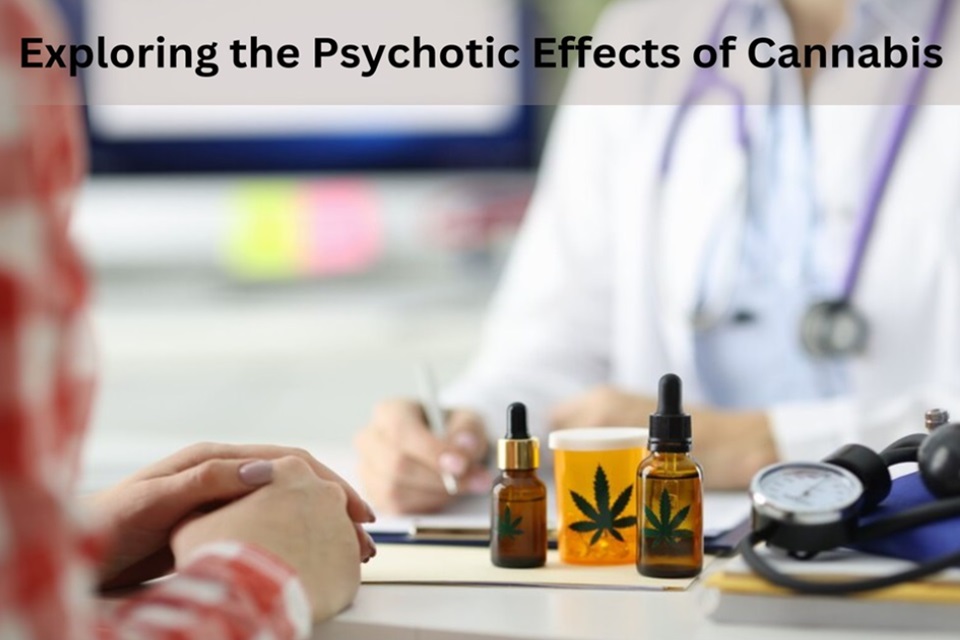Understanding Cannabis Psychosis: Exploring Marijuana’s Psychotic Effects
Cannabis, which is commonly referred to as marijuana, is one of the most widely used psychoactive substances in the world. The legalization of cannabis for medicinal and recreational purposes in many regions has generated significant interest and debate regarding its potential benefits and risks. While cannabis is often perceived as a relatively harmless substance, research has increasingly indicated a potential link between its use and the development of psychotic disorders such as schizophrenia. Understanding the complex relationship between cannabis and psychosis is crucial for informing public health policies and promoting informed decision-making among users.
The Relationship Between Cannabis & Psychosis
Psychosis is a mental state where a person is disconnected from reality, often shown by hallucinations, delusions, disorganized thinking or impaired cognitive function. There are various factors that contribute to the development of psychosis, such as genetic predisposition and environmental stressors. However, recent studies suggest that cannabis use, especially in adolescence, might increase the risk of developing psychotic outcomes.
Numerous epidemiological studies have consistently linked cannabis use to the onset of psychotic disorders. A meta-analysis published in JAMA Psychiatry found that individuals who used cannabis had a significantly higher risk of developing schizophrenia compared to non-users, with earlier initiation and heavier use correlating with greater risk. Additionally, longitudinal studies have demonstrated a dose-response relationship between cannabis consumption and the likelihood of experiencing psychotic symptoms, further supporting a causal link.
Biological Mechanisms
The precise mechanisms underlying the association between cannabis use and psychosis are multifaceted and not yet fully understood. However, researchers have identified several neurobiological pathways through which cannabis may exert its psychotomimetic effects.
The primary psychoactive compound in cannabis, delta-9-tetrahydrocannabinol (THC), acts on the endocannabinoid system, modulating neurotransmitter release and neuronal activity. Excessive THC consumption has been shown to disrupt the delicate balance of neurotransmitters such as dopamine, glutamate, and gamma-aminobutyric acid (GABA) in key brain regions implicated in psychosis, including the prefrontal cortex and striatum.
Furthermore, genetic vulnerability may interact with cannabis exposure to increase susceptibility to psychotic outcomes. Variations in genes encoding for cannabinoid receptors and enzymes involved in cannabinoid metabolism have been associated with an elevated risk of psychosis among cannabis users, highlighting the importance of individual genetic profiles in shaping susceptibility to cannabis-induced psychosis.
Psychosocial Factors
In addition to biological mechanisms, psychosocial factors play a crucial role in the relationship between cannabis use and psychosis. Adverse childhood experiences, trauma, socioeconomic disadvantage, and comorbid mental health conditions such as anxiety and depression may interact with cannabis use to exacerbate psychotic symptoms or increase vulnerability to psychosis onset.
Moreover, the potency and mode of cannabis consumption, particularly the prevalence of high-THC products and methods such as dabbing or vaping, may influence the likelihood of experiencing psychotic effects. High-potency cannabis strains with elevated THC content have become increasingly prevalent in legal markets, raising concerns about their potential impact on mental health outcomes.
Implications For Public Health
The growing body of evidence linking cannabis use to psychosis underscores the importance of implementing evidence-based harm reduction strategies and public health interventions. Education initiatives aimed at raising awareness of the potential risks associated with cannabis use, particularly among adolescents and young adults, are essential for promoting informed decision-making and mitigating adverse outcomes.
Furthermore, integrating screening and early intervention protocols for psychosis risk among cannabis users within healthcare settings can facilitate timely identification and treatment of individuals at heightened risk. Psychosocial interventions focusing on coping skills, stress management, and substance use reduction may also help mitigate the impact of cannabis on psychosis vulnerability, especially among vulnerable populations.
Conclusion
While cannabis holds therapeutic potential for various medical conditions, its association with psychotic outcomes necessitates a nuanced understanding of the complex interplay between biological, genetic, and environmental factors. By elucidating the mechanisms underlying cannabis-induced psychosis and implementing targeted interventions, policymakers, healthcare providers, and communities can work together to minimize the public health burden associated with cannabis use while promoting safe and responsible consumption practices.
FAQs
What’s the connection between cannabis and psychosis?
Cannabis use, especially in adolescence and heavy use, may raise the risk of psychotic disorders like schizophrenia. THC, the main psychoactive compound, likely disrupts neurotransmitters in brain areas linked to psychosis.
Does using cannabis mean you’ll experience psychosis?
Not necessarily. The link is influenced by factors like genetics, frequency of use, potency, and environmental stressors. Not all cannabis users develop psychosis.
Can cannabis-induced psychosis be treated?
Yes, with a mix of medication and therapy. Antipsychotics manage symptoms, while therapy addresses underlying issues and teaches coping skills. Early intervention improves outcomes.
How can one reduce the risk of cannabis-induced psychosis?
Avoid early use, moderate consumption, choose lower potency products, and consider family mental health history. Seeking help for adverse effects and promoting awareness can also help mitigate risks.





